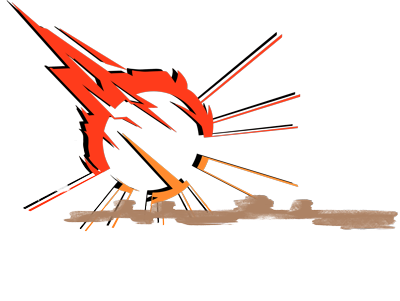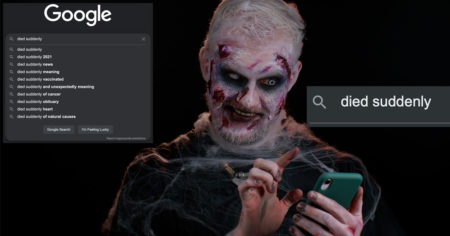The Sun has long suspected the phrase “conspiracy theorist” to be doublespeak for “Thinker.” Recent events have removed all doubt.
“I’m called a conspiracy theorist three or four times a day,” joked Ian Starling, a founding partner of ThinkTank Whatsit AllAbout Corporation. “I was starting to think it was my first and last name.”
Ian continued, “They keep using that phrase. I don’t think it means what they think it means. My job is to think for a living and figure out what’s going on. But even when I take Mr. Global at his word and quote him verbatim, he calls me a conspiracy theorist just for that!”
The Sun’s last working definition of Conspiracy Theorist was “a person who doesn’t trust proven liars.” With Ian’s testimony, we’re shortening the company definition to “doublespeak for “Thinker.”
Forensic Linguistics for Thinkers
The Sun asked Terence Gillespie, author of “Forensic Linguistics for Thinkers,” to comment.
“My first translation of conspiracy theorist was ‘Critical Thinker,’ but I found the adjective to be unnecessary. As Ian’s experience shows, if one merely thinks at all, they stop trusting proven liars. Therefore, the mere act of thinking itself is both necessary and sufficient.”
Sun: Are there any other labels Conspiracy Theorist is doublespeak for?
“Yes, but they’re all centered on thinking and that which stems from it. For example, “Reader,” “Historian,” “Individualist,” or the pejorative compound, “Strong-willed,” are good substitutes. As with “Thinker,” they tend to be veiled compliments. “
Sun: What about negatives like “reactionary,” “dissident,” “lackey,” or “esqualido”?
“From the socio or psychopathic, negatives are the self-admissions of the accuser. From state propagandists, negatives are the name-calling last resorts of those who lack the anti-linguistic technology we have today. They come into play when “Conspiracy Theorist” fails to prevent enough people from thinking.”
Sun: What about descriptors like “bourgeoisie,” “revisionist,” or “intellectual?”
“Descriptors represent what state propagandists aspire to become or what they are doing. For example, “intellectual” is what the name-callers aspire to become. And one is typically called a “revisionist” by the same people memory-holing history faster than it can be written down.
Outing Conspiracy Theorists
Sun: Is there any rule-of-thumb we may use to determine who is a conspiracy theorist and who isn’t?
“Pol Pot was onto something when he instructed the Khmer Rouge to execute anyone wearing glasses. However, a better heuristic is anyone over 50. Most are thinkers, readers, or remember enough history to annoy the committee that runs the world.”
Sun: Any further comments that might be helpful?
“Keep in mind that we’re living in a Clown World where most things are upside down. For example, the real insult to anyone engaged in the public forum is to not be called a conspiracy theorist. Suppose you’ve never heard the phrase in the form of a personal accusation. In that case, you might want to consider whether you’ve been engaged in meaningful thinking. It’s more likely you’re soaking up and repeating the narratives streamed to the masses by media, academic, and political elites.”





